
What Is Gastric (Stomach) Cancer? Signs, Symptoms, Causes
Gastric (Stomach) Cancer Defined
A Malignancy of the Stomach
Gastric cancer, or stomach cancer, is a malignancy (unrestrained growth of abnormal tissue) of the lining of the stomach. Infection with the bacteria, Helicobacter pylori (H. pylori), is a common cause of this type of malignancy. Tumors called adenocarcinomas are the most common type of stomach cancers. A carcinoma is a cancer that arises from tissue that lines the internal organs or the epithelial layer of the skin. Other forms include lymphomas, carcinoid tumors, and gastrointestinal stromal tumors. Unfortunately, gastric cancer often does not have early symptoms and signs so it is often diagnosed late in the course of the disease.
Adenocarcinoma Is Common
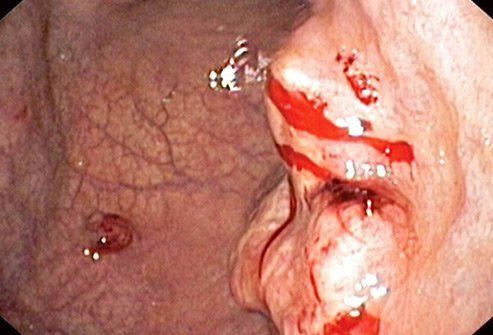
The vast majority of gastric cancers, up to 90% to 95% of all stomach cancers, are adenocarcinomas. These cancers arise from secretory cells in the stomach lining that produce mucus and other fluids. This layer is called the mucosa. Several risk factors predispose individuals to this type of malignancy. Diet, family history, inflammation, polyps, pernicious anemia, and smoking may all play a role in this kind of cancer. It occurs most commonly in men over the age of 40. People from certain regions of eastern Europe, Asia, and South America are also at greater risk.
Beyond Adenocarcinoma: Other Kinds of Stomach Cancer
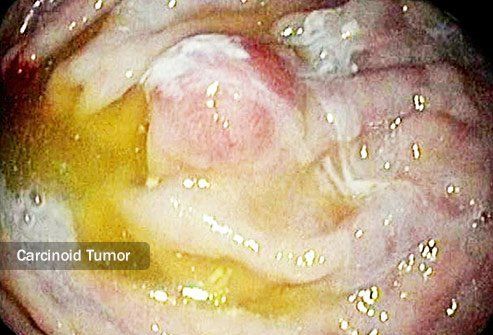
About 5% to 10% of stomach cancers are not adenocarcinomas. About 3% of gastric cancers are carcinoid tumors. These tumors arise from cells that make hormones. Lymphomas may arise from immune system tissue in the stomach. They comprise about 4% of gastric cancers. There are several different types of lymphoma that may occur in this region. Gastrointestinal stromal tumors (GIST) are among the rarest most rare types of gastric cancers. They occur in specialized cells called interstitial cells of Cajal. These are cells of the autonomic nervous system.
Who Is At Risk for Gastric Cancer?

Approximately 28,000 people in the U.S. are diagnosed with gastric cancer every year in the U.S. The median age at diagnosis of a typical patient is 68 years. It is most common in people between the ages of 65 and 74. Males are more likely to be diagnosed with the malignancy than men. About 1.7% of all cancers diagnosed every year in the U.S. are stomach cancers. It is the 15th most common cancer. Researchers suspect incidence of this cancer are going down since people are consuming fewer foods that are salted and smoked.
What Is Helicobacter pylori (H. pylori)?
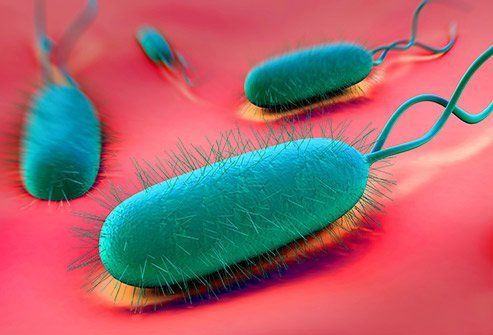
H. pylori is a bacterium that can infect the stomach lining. It secretes a substance that neutralizes acid, thereby making the stomach a more hospitable place for the bacteria to grow. The infection increases the risk for gastric ulcers and ulcers in the small intestine. Years long inflammation may result in atrophic gastritis. Inflammation, ulcers and atrophic gastritis may predispose you to developing stomach cancer. A blood, stool or breath test can help diagnose H. pylori. People who currently have ulcers or who have a prior history of ulcers should be tested for the bacteria. Those who have a first-degree relative with gastric cancer should also be tested. The good news is that the infection responds to treatment with antibiotics.
Gastric Cancer Risk Factors

People who have a close blood relative who has had gastric cancer are more likely to get it. Certain medical conditions increase the risk of stomach cancer. Familial adenomatous polyposis is a condition that runs in families where people are predisposed to developing polyps. Polyps may later turn into cancer. Pernicious anemia is a risk factor for stomach cancer. People who have it have low red blood cell counts because they have difficulty absorbing vitamin B12. Having no or inadequate gastric acid, a condition called achlorhydria, is also a risk factor for stomach cancer.
Lifestyle Factors

Diet is one controllable risk factor for stomach cancer. People who eat a diet high in salted meat and fish, smoked foods, and pickled vegetables are at increased risk of gastric cancer. Eating a diet that is low in fruit and vegetables also increases the risk of gastric cancer. Smoking, drinking excessive amounts of alcohol, and being overweight or obese up the risk of cancer of the stomach. Thankfully, these are all lifestyle habits that are controllable. Quit smoking if you smoke and cut back on alcohol if you drink. Limit your intake of smoked and salty foods. Eat a wide variety of fruits and vegetables to lower your risk of gastric and other cancers.
Gastric Cancer Signs and Symptoms

Stomach cancer is often diagnosed in the late stages because it does not typically produce signs and symptoms in the early stages. When gastric cancer does produce signs or symptoms, a patient with the illness may experience fatigue, unintentional weight loss, loss of appetite, abdominal pain or discomfort, nausea, vomiting, bloody or black stools, heartburn, and indigestion. Feeling bloated after eating may also occur in people who have stomach cancer.
How Is Stomach Cancer Diagnosed?

If a patient is having symptoms, see the doctor who will perform a physical exam. The doctor will take a personal and family history and an account of the patient's symptoms. The physician may order blood work or other tests to determine the cause of the symptoms. If it is deemed necessary, the physician can refer you to a gastroenterologist for more specialized testing. An upper endoscopy is used to visualize the inside of the stomach and the first part of the small intestine. An endoscopic ultrasound (EUS) involves advancing a transducer down the esophagus to visualize the different layers of the stomach wall, lymph nodes, and structures close to the stomach. The doctor may take biopsies of suspicious areas.
What Is an Endoscopy?
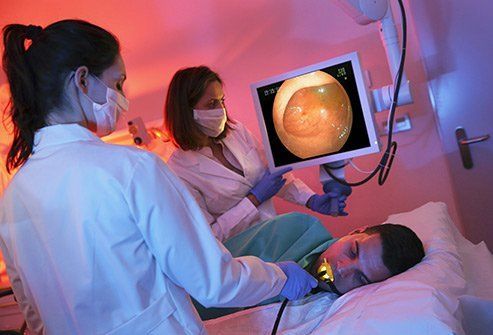
An endoscopy is a test where the doctor advances a camera through a tube down the patient's throat to visualize the inside of the stomach. The physician may examine the stomach wall and take a biopsy of any area that looks abnormal or appears suspicious. If adenocarcinoma cells are present, the tissue may be tested for levels of a protein called HER2/neu. Measuring levels of this growth-promoting protein helps guide treatment decisions. A biopsy can check for cancer cells and other diseases and conditions.
Additional Tests
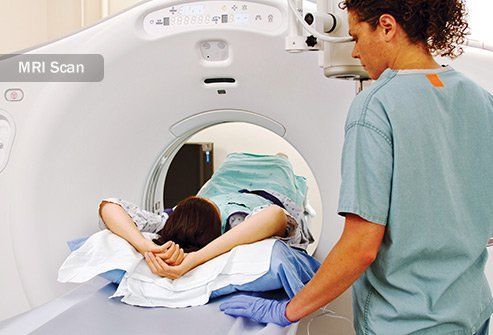
A patient may have a combination of additional tests if the doctor suspects gastric cancer. An upper gastrointestinal (GI) series is a an X-ray test where the patient drinks a chalky solution containing barium before images are taken of the esophagus, stomach, and the beginning part of the small intestine. A CT scan or CAT scan can take cross-sectional images of the abdominal area. The patient may be required to drink contrast solution before the test or receive an injection of contrast dye. An MRI scan may be used to visualize soft tissues of the body using radiowaves and a magnetic field to produce images.
Tumor Surgery
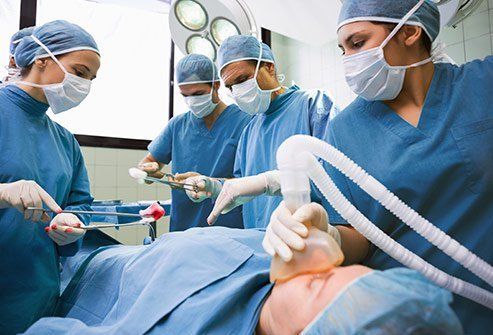
Surgery may be a treatment option for gastric cancer depending on where the cancer is, the stage of the tumor, and the overall health of the patient. The tumor will be removed and all or part of the stomach may be removed as well. The surgeon will remove lymph nodes to see if they contain cancer and examine surrounding organs like the liver for signs of cancer. This helps determine the stage and the extent of the disease. Surgery may not be an option for patients who have advanced disease. The medical team will design a treatment plan to guard against weight loss and other potential complications after surgery.
Radiation and Chemotherapy
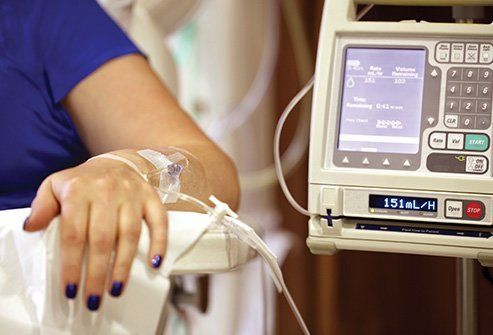
Radiation and chemotherapy are powerful treatments that may boost the survival rate of patients with stomach cancer. Radiation therapy involves the application of high-energy particles to an area to damage or destroy cancer cells. Gamma rays, electron beams, X-rays, and protons are a few types of radiation. Chemotherapy is powerful drug therapy designed to destroy cancer cells. Different agents or a combination of agents are used in chemotherapy. Radiation and chemotherapy may be used before surgery to help shrink a tumor. They are also frequently used after surgery. You and your medical team can discuss the individualized treatment that is best for your problem.
Targeted Therapy and Immunotherapy
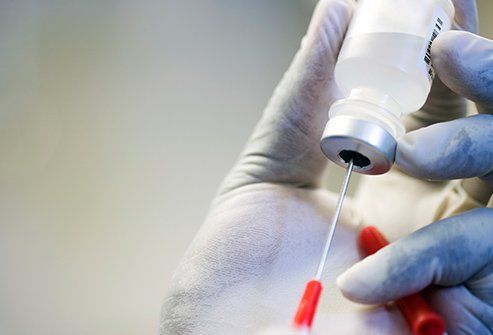
Targeted therapy is a kind of cancer treatment that may be used in some cancer patients. Targeted therapy exploits unique characteristics of certain malignancies and targets cancer cells for destruction. In general, these kinds of treatments have fewer side effects than standard chemo drugs. These drugs help spare healthy surrounding cells. Immunotherapy stimulates the body's own immune system to fight cancer. It is an innovative kind of cancer care.
Clinical Trials for Stomach Cancer
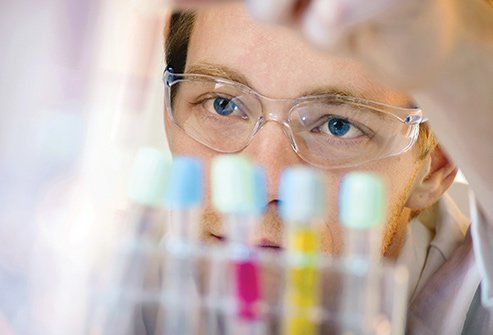
For patients who do not respond to standard surgery, chemo, radiation, and immunotherapy for stomach cancer, clinical trials sponsored by the National Cancer Institute offer a chance to try new procedures and drugs. Patients have to qualify in order to participate in clinical trials. Results from clinical trials add to the body of research in stomach cancer treatment. Clinical studies offer people new treatment options who may have exhausted other options for their health care.











